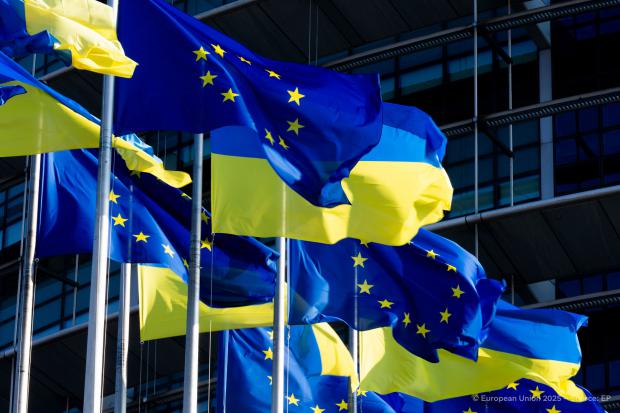
Breaking News
 Monero Under Pressure: Qubic's Dual?Mining Model Tests Community's Nerves
Monero Under Pressure: Qubic's Dual?Mining Model Tests Community's Nerves
 Surviving Is Resisting: A Day in Venezuela
Surviving Is Resisting: A Day in Venezuela
 Mel Gibson Calls Out Gavin Newsom: 'He Wants to Do the Maui Plan' – People in the Crowd Yell
Mel Gibson Calls Out Gavin Newsom: 'He Wants to Do the Maui Plan' – People in the Crowd Yell
 "More to Come" – Kash Patel Calls Out Clinton After Declassified Durham Annex Reveals Hill
"More to Come" – Kash Patel Calls Out Clinton After Declassified Durham Annex Reveals Hill
Top Tech News
 The mitochondria are more than just the "powerhouse of the cell" – they initiate immune...
The mitochondria are more than just the "powerhouse of the cell" – they initiate immune...
 Historic Aviation Engine Advance to Unlock Hypersonic Mach 10 Planes
Historic Aviation Engine Advance to Unlock Hypersonic Mach 10 Planes
 OpenAI CEO Sam Altman Pitches Eyeball-Scanning World ID to Bankers
OpenAI CEO Sam Altman Pitches Eyeball-Scanning World ID to Bankers
 New 3D-printed titanium alloy is stronger and cheaper than ever before
New 3D-printed titanium alloy is stronger and cheaper than ever before
 What is Unitree's new $6,000 humanoid robot good for?
What is Unitree's new $6,000 humanoid robot good for?
 "No CGI, No AI, Pure Engineering": Watch Raw Footage Of 'Star Wars'-Style Speeder
"No CGI, No AI, Pure Engineering": Watch Raw Footage Of 'Star Wars'-Style Speeder
 NASA's X-59 'quiet' supersonic jet rolls out for its 1st test drive (video)
NASA's X-59 'quiet' supersonic jet rolls out for its 1st test drive (video)
 Hypersonic SABRE engine reignited in Invictus Mach 5 spaceplane
Hypersonic SABRE engine reignited in Invictus Mach 5 spaceplane
 "World's most power dense" electric motor obliterates the field
"World's most power dense" electric motor obliterates the field
 The Wearables Trap: How the Government Plans to Monitor, Score, and Control You
The Wearables Trap: How the Government Plans to Monitor, Score, and Control You
EU freezes €29.7 billion in Ukraine aid after Zelensky undermines anti-corruption agencies

The freeze, enacted on July 24, targets emergency loans from frozen Russian assets and broader financial support mechanisms, signaling Brussels' refusal to bankroll a government accused of sabotaging its own anti-graft institutions. After fierce domestic protests and Western pressure, Zelensky reversed course within 24 hours, submitting new legislation to restore autonomy—but the damage to Ukraine's credibility may already be done.
The move exposes a glaring hypocrisy in Western support for Ukraine, where taxpayer-funded aid continues to flow despite rampant corruption at the highest levels. The U.S. and other nations must ask: Why are we propping up a regime that actively dismantles accountability while begging for billions?
Zelensky's power grab backfires
The crisis began on July 21, when Ukraine's Security Service (SBU)—an agency loyal to Zelensky—raided the offices of the National Anti-Corruption Bureau (NABU) and inspected the Specialized Anti-Corruption Prosecutor's Office (SAPO). These agencies, established after Ukraine's 2014 Revolution of Dignity, were designed to root out systemic graft. But their independence became a liability for Zelensky when they targeted his inner circle, including former Deputy Prime Minister Alexey Chernyshov, a key ally accused of corruption.
By July 22, Ukraine's parliament, dominated by Zelensky loyalists, passed a bill gutting NABU and SAPO's autonomy. Zelensky signed it into law on July 23, sparking immediate backlash. Roughly 2,000 protesters flooded Kyiv's streets, with rallies spreading to other cities—marking the first major wartime dissent against Zelensky's leadership.
The EU reacted swiftly. "All financial assistance has been put on hold," confirmed Ukrainian government sources, citing Brussels' ultimatum. The suspension halts two key programs: the €17.2 billion ERA (Extraordinary Revenue Acceleration for Ukraine) fund, drawn from frozen Russian assets, and the €12.5 billion Ukraine Facility, a lifeline for the war-torn economy.
Western pressure forces a retreat
Facing condemnation from the EU, the U.S., and even British Prime Minister Keir Starmer, Zelensky scrambled to contain the fallout. On July 24, he submitted a new draft law claiming to "strengthen" NABU and SAPO's powers in a transparent attempt to placate Western donors. While the bill restores nominal independence, it allows the SBU to inspect anti-corruption staff within six months, leaving the door open for future interference.
The episode reveals Zelensky's true priorities: protecting his cronies, not combating corruption. "Zelensky has long tried to establish control over NABU and SAPO," noted TASS, highlighting his desperation to neutralize investigators probing his allies. Opposition lawmakers warn more indictments loom, threatening Zelensky's political survival.
The EU's suspension is a rare display of accountability, and it's one that Washington should emulate. For years, U.S. taxpayers have bankrolled Ukraine's government despite glaring corruption, including Zelensky's refusal to appoint reformist Oleksandr Tsyvinskyi to lead the Economic Security Bureau. The IMF, too, has warned that Ukraine risks losing $15.6 billion in aid unless it cleans house.



